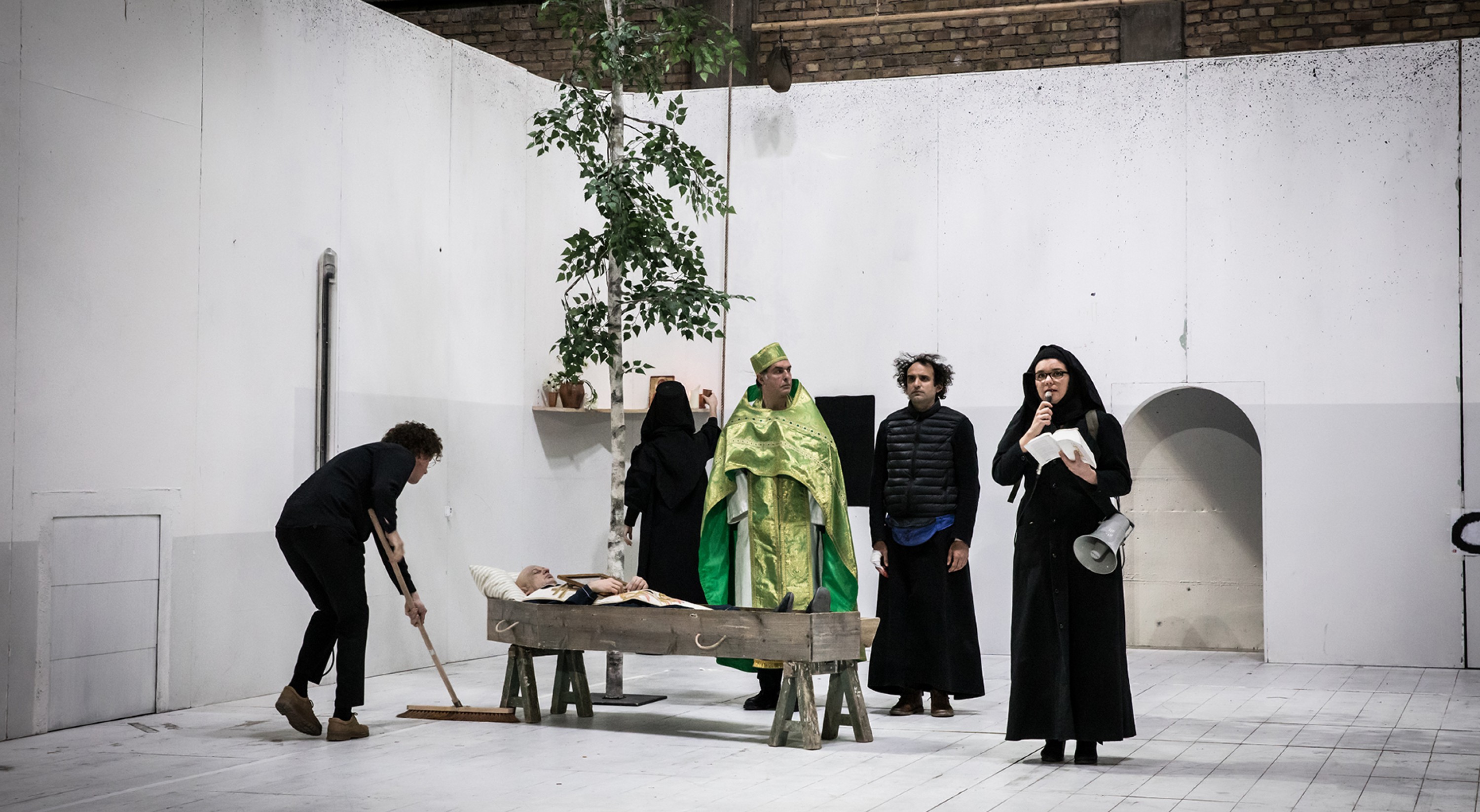Sylvain Creuzevault
Les Frères Karamazov d’après Fiodor Dostoïevski
novembernov 14 - december – dec 14
decemberdec 10 – 11
Adaptation and direction, Sylvain Creuzevault
Based on The Brothers Karamazov by Fyodor Dostoyevsky
Translation, André Markowicz
With Nicolas Bouchaud, Sylvain Creuzevault, Servane Ducorps, Vladislav Galard, Arthur Igual, Sava Lolov, Pauline Lorillard, Frédéric Noaille, Blanche Ripoche, and Sylvain Sounier
Dramaturgy, Julien Allavéna
Stage design, Jean-Baptiste Bellon
Lighting, Nicolas Joubert
Music, Sylvaine Hélary, and Antonin Rayon
Sound, Michaël Schaller
Costumes, Gwendoline Bouget
Masks, Loïc Nébréda
Make-up, Mytil Brimeur
Produced by Le Singe
Coproduced by L’empreinte, Scène nationale Brive-Tulle ; Le Théâtre des 13 vents – CDN Montpellier ; Bonlieu scène nationale Annecy ; Odéon-Théâtre de l’Europe (Paris) ; and Festival d’Automne à Paris
In association with Odéon-Théâtre de l’Europe (Paris) ; and Festival d’Automne à Paris for performances at the Odéon-Théâtre de l’Europe (Paris)
The company receives support from the Direction Générale de la Création Artistique du Ministère de la Culture.
With support from Adami
In partnership with France Inter
Sylvain Creuzevault has had an obsession with Dostoyevsky for a long time. Following his adaptation of The Devils (2018), he now tackles The Brothers Karamazov. The theatre now becomes an arena for the interior conflicts and theological soul-searching of these mythical, flamboyant characters.
In conjunction with his company, Le Singe, Sylvain Creuzevault has been unceasing in his efforts to bring to the stage the modern invention of politics and to dissect the history of socialism. Dostoyevsky’s work is a key element in this artistic quest of gigantic proportions: following on from The Devils, Crime and Punishment, and The Adolescent, the director now tackles The Brothers Karamazov. The intrigue seems a simple one: Fyodor Karamazov is murdered. Who is guilty? The author uses the story of a patricide in order to confront himself with the metaphysical and political questions which weigh on his mind: the confrontation between good and evil, guilt, the artificial nature of faith, and the reconciliation between divine law and earthly law. And whilst Dostoyevsky criticises the institution of religion and its thirst for power, faith still finds a place within the novel. All of his reflections are given flesh and blood in this crime story of farcical allures. The difference, however, is that this is farce of an uneasy, grinding nature which does away with convictions and distils the destructive power of laughter. These are amongst the many ambiguities that Sylvain Creuzevault brings to the stage without shying away from the narrative pleasure of The Brothers Karamazov. Romantic and fantastical in equal measure, the work is a blend of different genres, in response to which the stage offers a magnificent playground for this unclassifiable novel.
See also

